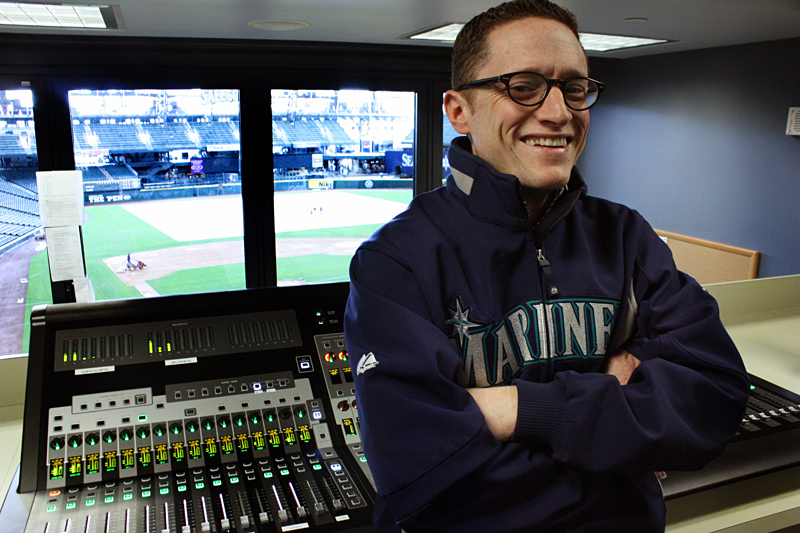With no Greg Nickels to kick around, and with Joe Mallahan on a policy-cram sabbatical, the mayoral campaign has been a bit quiet of late, despite the occasional event by Mike McGinn. This week will revive it, though. McGinn and Mallahan are slated to debate on Thursday, and they got started a little early today, with McGinn looking to open a second front in the transportation wars.It’s well documented that they differ on whether to go ahead with the waterfront tunnel, but Mike McGinn summoned the press to First Hill Park today to announce that he and Joe Mallahan differ on whether to go ahead with the First Hill streetcar as well. McGinn said that their difference on the planned line–which was part of the Sound Transit package voters approved last fall–shows a “difference in values”–in terms of commitment to transit and to heeding voters’ will. Sound Transit, McGinn noted, received 70% support in Seattle last November, whereas a 2007 advisory vote produced a similar margin against a cut-and-cover tunnel. Seattle has “voted for transit to First Hill more than once,” he added, referring to the first Sound Transit vote, which included a First Hill station (later canceled for cost reasons.)Mallahan spokesperson Charla Neuman said that streetcars are inefficient and ineffective, but that the First Hill Streetcar may be built anyway, since voters approved it and the city is already beginning planning on it. “Joe knows that streetcars cost more to build and to operate than badly needed bus services. It’s a more efficient use of transportation dollars to invest in bus service rather than to build additional streetcar lines.” What’s more, she contends, streetcars only work when they have signal priority and right of way. (At his press conference, McGinn advocated for these things as well, saying an important measure of any new transit project must be its ability to bypass traffic.) Asked if Mallahan would support the same advantages for buses to increase their efficiency (the rationale behind RapidRide and other bus rapid transit models), Neuman said, “That would have to be looked at very specifically. Sometimes it’s better, sometimes it’s not.”Hitting back at McGinn, Neuman said he shouldn’t be supporting the streetcar before bids come in on the project, as they could exceed the $120 million Sound Transit has allotted for the project. For his part, McGinn said he’s not as worried about cost overrun as he might be with, say, the tunnel. “It’s a surface project with a mature technology,” he said of the streetcar, noting that, by contrast, the two deep-bore tunnel machines being used for the Brightwater sewage treatment plant are currently stuck and awaiting repair. But the call-outs didn’t end with the streetcar: McGinn also argued that Mallahan is inconsistent in supporting the tunnel but opposing the Mercer Corridor Project, which is a necessary element of the tunnel traffic flow. But Neuman notes that Mallahan’s opposition is to the project’s financing, not the project itself. “He thinks that developers’ contributions to a project that will dramatically increase their property value should be greater.”Thus marks one of the first substantive exchanges between the campaigns, a welcome development after the post-Nickels vacuum, and a positive harbinger for Thursday’s throwdown.
More Stories From This Author
New state legislation fights catalytic converter theft
Governor Jay Inslee signed a bill on March 26 adding new regulations to the purchase and sale of catalytic converters…
By
Benjamin Leung • April 8, 2024 1:55 pm
Kirkland officer steps down following investigation into bikini barista incident
A Kirkland police officer accused of exhibiting odd behavior toward bikini barista employees while using a city-owned vehicle has resigned…
By
Cameron Sires • April 5, 2024 10:09 pm
KC Sheriff’s Office sues over Burien encampment ban
Office of Law Enforcement Oversight director calls Burien’s ordinance “unconstitutional.”
By
Cameron Sheppard • March 18, 2024 12:32 pm






